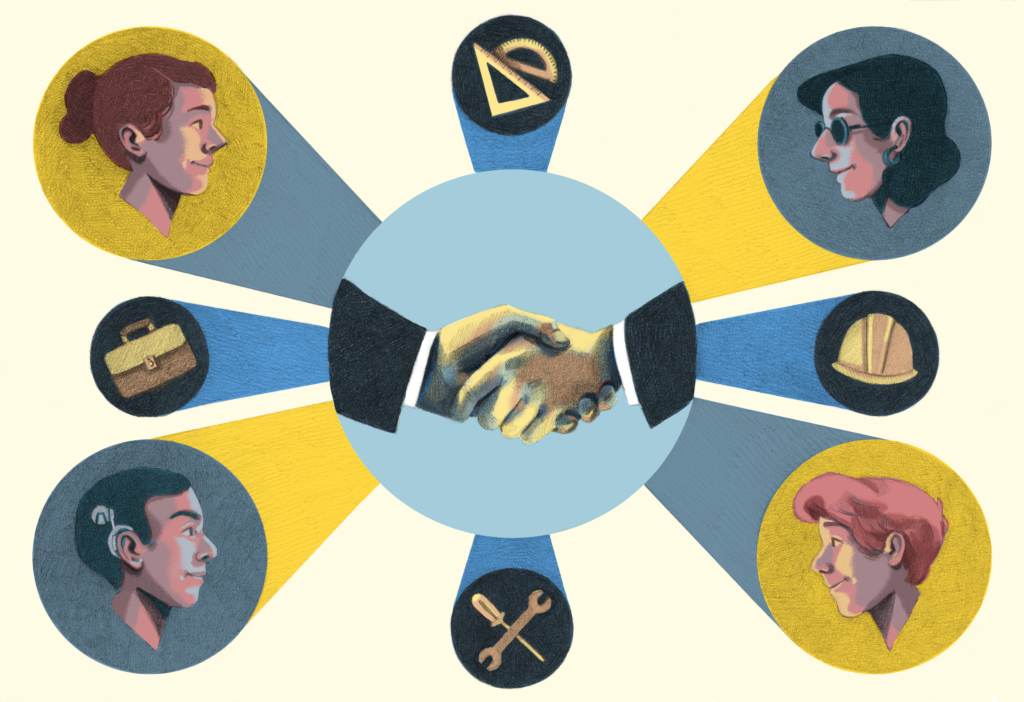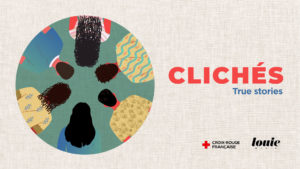
Illustrator: Susana Pales
Description
The LISA project, co-funded by the Italian Ministry of Labour and Social Policies, has two main objectives: to promote the social and professional inclusion of vulnerable people, in particular people with disabilities, and to raise awareness about the importance of combining productivity and inclusion.
Context
The economic crisis that has affected Italy since 2008 has led to an increase in the number of people living in poverty, triggering pernicious spillover mechanisms for those who were already struggling. These are people affected by the so-called “new poverty”. The recurring conditions that characterise the “new poor” are loss and absence of work, difficult wage conditions, inability and impossibility to re-enter the labour market and have one’s experience and skills recognised, lack of positive relationships that meet one’s needs and social exclusion. According to the European Commission’s 2020 strategy, economic recovery and growth cannot be sustained in a situation where inequality, poverty and social exclusion coexist, as this leads to the deterioration of social cohesion and the fracture of the community. For this reason, it is necessary to increase the development of an inclusive economy that promotes economic, social and territorial cohesion.
The monitoring of social activities, carried out in 2018 by the National Committee, showed that 48 territorial Committees of the Italian Red Cross are active in the professional inclusion of people in conditions of disadvantage and vulnerability, in a more or less structured form. Almost 350,000 vulnerable people are assisted throughout the country, including at least 15,000 people with disabilities.
This activity highlighted the need to develop a standardised model of intervention for the socio-professional inclusion of people in situations of disadvantage and vulnerability, which guarantees access to employment and accompanies the beneficiary throughout their journey. Based on these considerations, the Italian Red Cross responded in 2018 to a public notice from the Ministry of Labour, presenting the LISA project proposal.
Technical details & Operations
The LISA project is based on the work of 21 centres spread over 18 regions and coordinated at the national level (each of them having its own opening hours to the public on certain days of the week). In the centres, Italian Red Cross volunteers offer an integration pathway, accompanying the person in a situation of disadvantage and vulnerability from the recognition of need to training, entry into the labour market and support for job retention. The activities guaranteed in the centre include individual interviews to analyse the experience, skills and professional interests of the disadvantaged and vulnerable person, as well as taking charge of the person by drawing up personalised development plans aimed at employability and including collective and individual activities. In addition to this structure, there is a staff of 5 people in charge of the pilot action ENERGIA (ENable EveRyone Growth Independence Autonomy) at the logistic pole of Bussoleno (Turin).
The ENERGY action is implemented in favour of severely disadvantaged and vulnerable people, with the aim of promoting a replicable model of economic and social development in the area, through social agriculture and experiential tourism. The objective of the project is to promote a replicable model of economic and social development in the area through social farming and experiential tourism. The courses include social farming activities (fruit and vegetable production through agro-ecological systems and organic farming practices; backyard animal husbandry) and hospitality activities (experiential tourism, holiday and volunteer projects, training camps).
Among the tools created to support the project’s activities is the lisa.cri.it platform, an online recruitment platform designed to facilitate the matching of job supply and demand. LISA beneficiaries, with the support of school directors, create their own online curricula, which are then uploaded to the platform. Companies can create their own job descriptions, post vacancies, search for qualified staff, view candidates’ profiles and arrange interviews with the best candidates. Finally, training providers, by subscribing to the platform, will be able to publish online and offline training offers for all registered candidates.
Communication with the committees is mainly by e-mail and through a shared drive where project documents are uploaded. A face-to-face meeting was organised in Rome in October 2021, which was attended by all project referents.
The monitoring of the activities carried out by the individual directors, on the other hand, takes place on a monthly basis by sending a Google form to all committees.
Deployment & Impact
The main activities of the project are:
- Training activities for Italian Red Cross volunteers
- Orientation of beneficiaries
- Accompaniment of the beneficiaries in their professional orientation
- Organisation of local awareness-raising events on the theme of the professional integration of people with disabilities
- Organisation of events to match job offers and demands
- Building a national and local network with companies, organisations and institutions by signing framework agreements
- Activities to promote the independence of people with disabilities
- Communication campaign on social media, TV and radio
- Training activities for beneficiaries as “Individual Autonomy Trainers”.
- Action Energy and activation of residential pathways to autonomy and inclusion
Impact indicators: the following is a summary of the results achieved so far (data updated to 30/10/2021):
- Volunteers trained: 459
- Beneficiaries referred: 358
- Beneficiaries accompanied on placement pathways: 5
- National framework agreements signed: 10
- Local framework agreements signed: 16
- Organisation of local awareness-raising events: 4
- Users reached by the communication campaign: 696 703
- Beneficiaries trained as “self-employed trainers”: 24
- Users registered on the Lisa platform: 377
- Companies registered on the Lisa platform: 49
- Residential courses activated by the Energy Action: 8





